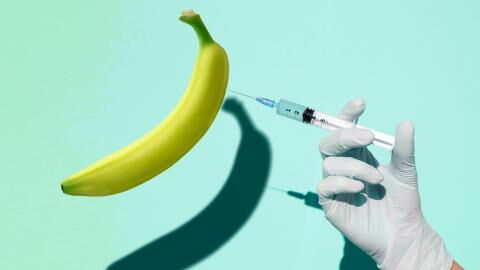Researchers at Yale University have discovered that exposure to the common cold can offer some protection against coronavirus.
Discover our latest podcast
The new findings published in the Journal of Experimental Medicine could also provide a jumping-off point for potential coronavirus treatments. Timing is crucial here, as researchers believe the treatment would need to be taken immediately after infection.
How can the common cold prevent coronavirus?
We’ve all suffered from a bad cold at one point or another, yet coronavirus is still a real danger for most of us. So how can the rhinovirus protect against SARS-CoV-2?
Yale researchers found that the common cold triggered a response from interferon-stimulated genes, an early immune response that can prevent coronavirus from replicating in the airway tissues already infected with the cold.
Ellen Foxman, assistant professor of laboratory medicine and immunobiology at the Yale School of Medicine and senior author of the study, revealed that the findings could pave the way for using interferon - an immune response protein - as a possible treatment for COVID-19.
After analysing the swabs of those who had tested positive for COVID early on in their infection, Yale researchers found that COVID replicated rapidly over the first few days of infection before the immune response kicked in. Foxman explained:
There appears to be a viral sweet spot at the beginning of COVID-19, during which the virus replicates exponentially before it triggers a strong defense response.
This viral ‘sweet-spot’ means that although interferon treatment is promising, it would need to be administered in the days immediately after infection. Yale researchers now speculate that interferon drugs could be used as a precautionary measure for those considered high-risk who have recently come into contact with a COVID infected person. Trials of interferon for COVID-19 are now underway and so far show a benefit when used early on in the infection.
However, if the treatment is used too late, it could come with some risks. Previous studies have shown that during the later stages of COVID infection, high interferon levels could also cause overactive immune responses.
Coronavirus safety measures have slowed down cold and flu infections
While rhinovirus infection may provide some COVID protection, coronavirus precautionary measures have drastically reduced the number of cold and flu cases.
Last winter - the time of year commonly marked as flu season - the US actually saw a decline in cold infections. Public health experts concluded that actions such as increased and proper handwashing, wearing masks and using hand sanitiser also worked to protect against other respiratory viruses.
In the winter, flu cases in the UK also dropped to their lowest rates in over 130 years.
At the beginning of January 2021, flu positivity rates were at 0%; out of 1894 people tested for the flu, none were infected with the common virus. Towards the end of the month, the number of people reporting flu cases to doctors fell to just 0.9 per 100,000. In comparison, the usual five-year rate is normally around 27 per 100,000. Simon de Lusignan, professor of primary care at Oxford University, revealed to The Sun:
I cannot think of a year this has happened.















